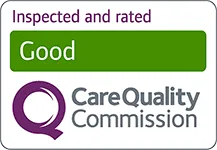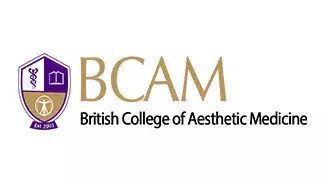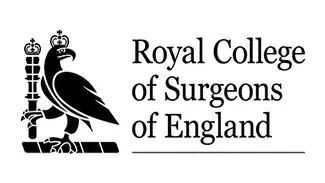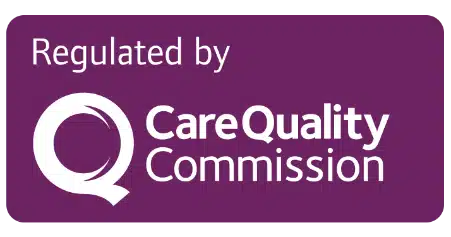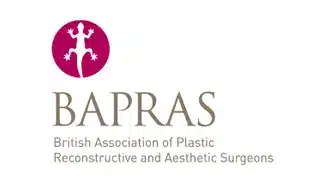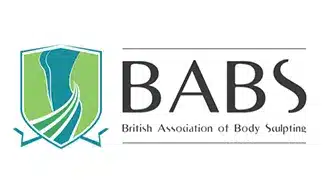Procedure Time 30 Minutes
Results Seen Immediately
Back To Work Immediately
Pain Level Mild
Hospital Stay None
Cost On Consultation
GMC Registered Surgeons
6700+ Happy Patients
Flexible Finance Options
CQC Registered Private Hospital
What Is Trigger Finger Surgery?
Trigger finger surgery is an operation that can relieve the symptoms of trigger finger – a condition that affects one or more of the hand’s tendons.
Trigger finger occurs if a tendon, or the tendon sheath (the tunnel a tendon runs through), becomes swollen and inflamed. As a result, the tendon becomes irritated and ‘catches’ on the tendon sheath, making it difficult to move and bend the fingers and thumbs. It can also cause a clicking sensation. Also known as stenosing tenosynovitis or stenosing tenovaginosis, trigger finger can impact any finger or thumb, and it can develop in both hands.
During trigger finger or trigger thumb surgery, the affected section of the tendon sheath is cut to enable the tendon to move freely. In turn, this will relieve your symptoms.
What Causes Trigger Finger?
It’s not clear why trigger finger occurs, but there are several factors that may increase the chance of a person developing this condition. For example, trigger finger is more common in women, and those who are over 40 years old.
You may be at an increased risk of developing trigger finger if you have certain medical conditions. For instance, Dupuytren’s contracture, another hand-related condition, can put you at a higher risk. This condition causes the connective tissue in the palm to thicken, causing one or more of the fingers to bend into the palm.
It’s also thought that long-term health conditions can be associated with trigger finger, such as rheumatoid arthritis and diabetes.
What Are The Symptoms Of Trigger Finger?
In most cases, trigger finger can be highly irritating, rather than being a serious medical condition. That being said, it still has the ability to affect your everyday life, causing you discomfort and making carrying out certain tasks extremely difficult.
The main symptoms include pain at the bottom of the finger or thumb and a clicking noise or stiffness when you move the fingers or thumb. You may also notice that your symptoms are worse when you wake up in the morning.
As the condition develops, you might experience pain in your hand, even when you’re not moving it, and you may also notice a lump in your palm. This can mean that your affected finger becomes awkwardly positioned, and it may suddenly pop back into a straight position. Over time, you may find that you are no longer able to fully bend or straighten the finger.
If trigger finger is left untreated, there is a chance that the affected fingers and thumbs will become permanently stuck in a bent position.
Why Do I Need Trigger Finger Surgery?
There are a number of treatments available to help alleviate the symptoms of trigger finger, including splinting and corticosteroid injections. Some people find that anti-inflammatory medicines, such as ibuprofen, can help relieve pain.
However, if your symptoms are persistent and severe, a trigger finger operation may be an option, especially if you haven’t found another treatment that works for you.
During your consultation, you will be able to discuss whether surgery is suitable. Your surgeon will assess how much pain you’re experiencing, whether your trigger finger is linked to another medical problem, including rheumatoid arthritis, and how much of an impact it’s having on your life.
What Happens During Trigger Finger Surgery?
Taking about 20 minutes, trigger finger surgery is a day patient procedure. This means there is no need to stay overnight and you’ll be allowed home on the same day.
This procedure is performed under local anaesthetic so that you don’t feel any pain in your hand.
There are two ways in which trigger finger surgery can be carried out. These options are open trigger release finger release surgery and percutaneous trigger finger release surgery.
Open Trigger Finger Release Surgery
For open trigger finger release surgery, you will be given a local anaesthetic injection in your hand. The surgeon will make a small cut at the bottom of the finger or thumb, then cut the top of the tendon sheath to widen it. The incision is then stitched closed and wrapped in a bandage.
Percutaneous Trigger Finger Release Surgery
With percutaneous trigger finger release surgery, you will be given a local anaesthetic injection into your hand. The surgeon will insert a needle into the bottom of the finger or thumb, then use it to cut through the ligament to reach the tendon.
This type of surgery does not require an incision, meaning that you won’t have an open wound. However, this procedure carries more risk and may not be as effective in solving your trigger finger.
What Happens After Trigger Finger Surgery?
After your trigger finger surgery, you should be able to move your finger with ease. If you’ve had open surgery, it’s likely that your palm will feel sore, but this discomfort should ease within a couple of weeks.
Before you go home, your nurse will provide you with aftercare advice on how to clean and care for your hand.
Recovery From Trigger Finger Surgery
You should be able to remove your dressings a few days after your surgery. This will help make movement easier, and you should find that you regain full movement of your hand within two weeks.
You will be able to start driving again as long as you feel safe to do so. This is usually about three to five days after surgery. Once your wound has healed and you can grip, you can resume any sporting activities and exercises, and you will be able to use a computer immediately.
If your job entails manual labour, you may find that you need around four weeks off. However, if your job requires light duties, for example, if you work in an office environment, you may not need any time off.
If you’ve undergone percutaneous surgery, rather than open surgery, it’s likely your recovery period will be shorter as you will not have a wound. It’s important to note that your recovery period may be longer if you’ve had surgery on multiple fingers.
Complications Of Trigger Finger Surgery
As with any type of surgery, there are risks involved. Although they are rare, complications of trigger finger release surgery include:
- pain or stiffness in the finger or thumb
- infection
- scar tenderness
- nerve damage
- complex regional pain syndrome (CRPS), which causes discomfort and swelling in the hand
- tendon bowstringing (when the tendon is in the wrong position)
Why Choose Us For Trigger Finger Surgery?
When it comes to trigger finger surgery, Manchester Private Hospital is here for you. Our team of experienced and skilled nurses, doctors and surgeons will provide you with high quality care and respect at all times.
From your initial consultation, you can trust that you’re in safe hands. When you meet our surgeons for the first time, you’ll be able to discuss your needs. We provide a safe, comfortable space where you can ask any questions or highlight any concerns you may have. We can also provide you with information about how much trigger finger surgery costs, giving you a selection of finance options.
Book your free, no obligation consultation today. Simply get in touch to learn more about how Manchester Private Hospital can help you.
Frequently Asked Questions
Trigger finger surgery is an effective procedure, and it is rare for the symptoms to return in the previously affected finger or thumb. After surgery, you may experience some soreness in your hand, but this should ease within a couple of weeks.
Trigger finger surgery is an effective procedure, and it is rare for the symptoms to return in the previously affected finger or thumb. After surgery, you may experience some soreness in your hand, but this should ease within a couple of weeks.
Trigger finger surgery is performed under local anaesthesia. This means you remain awake for the procedure, but you will not feel any pain.
Trigger finger surgery is performed under local anaesthesia. This means you remain awake for the procedure, but you will not feel any pain.
Trigger finger surgery is a day patient procedure and usually takes about 20 minutes to complete. There’s no need to stay in hospital overnight.
Trigger finger surgery is a day patient procedure and usually takes about 20 minutes to complete. There’s no need to stay in hospital overnight.
You may need to take some time off work following the procedure. For example, if your job requires manual labour or heavy lifting, you might need to take around four weeks off. If your job doesn’t involve manual labour, you may feel ready to return to work almost immediately. Your surgeon will be able to give you a clear idea of when you are likely to be fit to return to work after the procedure.
You may need to take some time off work following the procedure. For example, if your job requires manual labour or heavy lifting, you might need to take around four weeks off. If your job doesn’t involve manual labour, you may feel ready to return to work almost immediately. Your surgeon will be able to give you a clear idea of when you are likely to be fit to return to work after the procedure.
There are treatments you could try to alleviate the symptoms of trigger finger, such as splinting (when the affected finger or thumb is strapped to a plastic splint) and corticosteroid injections (a steroid injection that can reduce swelling). Some people are able to manage their symptoms with anti-inflammatory painkillers, such as ibuprofen. However, if your trigger finger symptoms are severe, and you have not found a treatment that works, you may find that surgery is the best option for you.
There are treatments you could try to alleviate the symptoms of trigger finger, such as splinting (when the affected finger or thumb is strapped to a plastic splint) and corticosteroid injections (a steroid injection that can reduce swelling). Some people are able to manage their symptoms with anti-inflammatory painkillers, such as ibuprofen. However, if your trigger finger symptoms are severe, and you have not found a treatment that works, you may find that surgery is the best option for you.
The cost of trigger finger surgery will depend on several factors, including the type of procedure you have and whether you need treatment on multiple fingers. You will be able to discuss the cost of this procedure with your surgeon during your consultation appointment.
The cost of trigger finger surgery will depend on several factors, including the type of procedure you have and whether you need treatment on multiple fingers. You will be able to discuss the cost of this procedure with your surgeon during your consultation appointment.
At Manchester Private Hospital, our surgeons are highly skilled and experienced in performing trigger finger surgery. Book your free consultation today to find out how we can help you. We have clinics across the UK in Manchester, London, Birmingham, Leeds and Liverpool.
At Manchester Private Hospital, our surgeons are highly skilled and experienced in performing trigger finger surgery. Book your free consultation today to find out how we can help you. We have clinics across the UK in Manchester, London, Birmingham, Leeds and Liverpool.
0% Finance Available
Manchester Private Hospital have collaborated with Chrysalis Finance to offer 0% finance for our patients.*
*Acceptance is subject to status. Terms and conditions apply.
*Procedure prices are not fixed and may vary as procedure costs are tailored to individual requirements so vary from person to person. You will receive a guide price during your initial eConsult and a fixed price following your surgeon face to face consultation.



